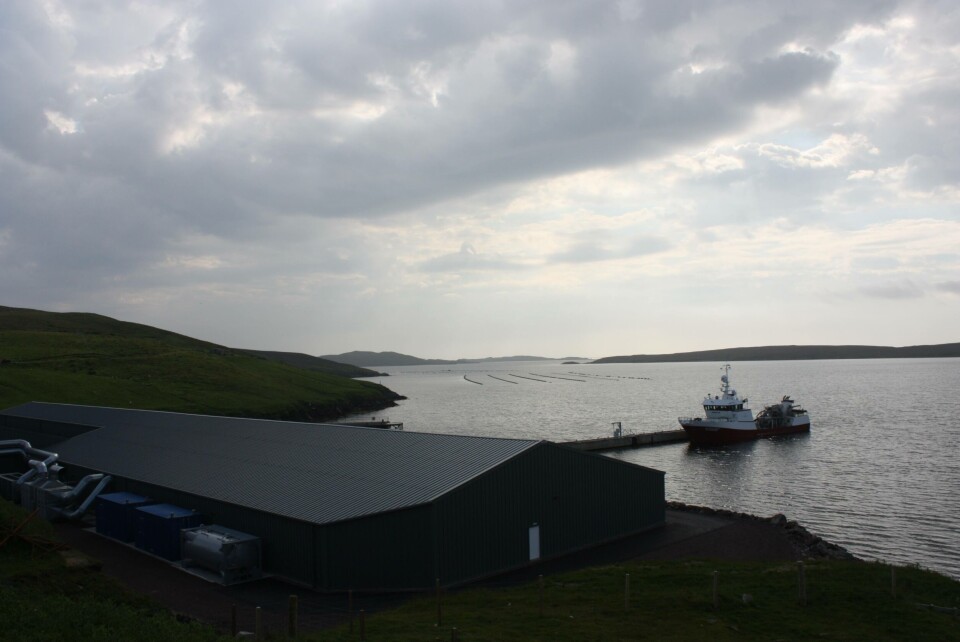
Grieg stutters in Shetland
Harvesting salmon in “high-cost locations” led to Grieg Seafood Shetland’s (GSS) operations ending 2016 on a tough quarter, with an average EBIT/kg of NOK 8.8, well below the group average of NOK 21.80.
Although this was a marked improvement on the NOK -17.2 per kilo the company achieved in the corresponding quarter of 2015, it was considerably lower than the group’s results in Norway, which averaged NOK 27.9/kg. However, the group’s Canadian operations also fared poorly, at NOK 7/kg – a performance that was largely blamed on algal outbreaks in BC earlier in the year.
Back in Scotland, GSS’s harvest volume was 3,897 tonnes, down from 3,974 tonnes in Q4 2015 and the company’s report, which was published today, reveals that several of the high-cost locations harvested in the quarter “will be temporarily laid fallow when the new 18-month production cycle is implemented”.
A similar trend is expected in the first quarter of 2017, where more of the poorly performing locations are currently being harvested and therefore “there will therefore be no reduction in costs in Q1”. However, looking ahead the company states that “harvesting of the first fish under the new production plan will start in Q2 2017 when costs are expected to be at a reduced/normalized level”.
The report adds that last year’s challenges presented by algae, AGD and sea lice in Shetland have resulted in somewhat lower production volumes and the harvest volume for 2017 is now expected to be 1,000 tonnes lower than previously indicated.
Reflecting on the results, Grant Cumming, who took over as MD of GSS during Q4 2016, told Fish Farming Expert: “I am generally happy with the improvement in the result when compared to 2015, although there is still room further strengthen our business. I would like to take the opportunity to thank all our employees who have worked extremely hard to improve our performance in all aspects of the business.”
Group results
Overall, it was GSF's best quarter ever, achieving an EBIT of MNOK 456 (NOK 21.80/kg) – a result that was helped by high harvest volume (20,917 tonnes) in a strong market – and the Board has approved a dividend of NOK 3 per share. The Group’s main biological concern in Norway has been an ISA outbreak in Finnmark.























































